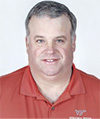Years ago when I was completing my dissertation on perceptions of agriculture and how these perceptions shape young minds making career decisions, farmers and industry personnel would share story after story about negative attitudes towards agriculture. Even among my colleagues in extension service, there are gross misunderstandings and misconceptions about the realities of modern agriculture and the science of providing mankind with food and fiber.
Don’t give up
So where does one begin when trying to shine a positive light on agriculture? As producers, we are outnumbered nearly 99 to one, so what chance do we have in making any difference at all? In thinking about the dos and don’ts of ag advocacy, this is a good place to start – don’t give up. Literally standing on the sidelines as an industry hasn’t helped us in the past; doing so in the information age isn’t going to help us in the future either.
Do no harm
Glossophobic? The fear of public speaking is very real for many people. If you are glossophobic, rest easy. The most powerful statements usually have no words at all. Your actions (or evidence of your actions) speak volumes, so do no harm. I remind farmers that their neighbors and passersby “smell with their eyes.”
Green is clean, and having a neat and attractive “storefront” for your farm is as important as any speech made. In fact, I would contend that reckless disregard for the public viewpoint of your operation is as damaging as any false statement on Facebook. Chances are very real that your farm may be the only image of agriculture your neighbors have.
Do open your mouth
If you are speaking to a civic or non-farming group, do dress at or just above what is considered normal for the group. Doing so helps build connections and helps solidify the image of the modern professional farmer. Do your research. You know your operation, but what are the local, county, state or national facts about your subject?
Do recruit a friend or family member to listen to your message and play devil’s advocate. Anticipate questions or negative opinions from the audience. There always seems to be someone in the audience who wants to be a panelist.
Don’t lose your temper
When faced with opposition, don’t lose your temper. Losing your cool in a debate means just that, you lost. As a colleague told me long ago, a person can “make a great argument if they don’t let little things like the facts get in the way!” You can expect that the person arguing with you is well-read, but short on experience. A tactic I try to use is, “I can see how you might feel that way given your experiences; however ...”
For example, during a speaking engagement at a local liberal arts college, a young lady made a statement that “drinking milk with all those added hormones” was the culprit for young girls reaching puberty at an earlier age.
Research shows that there may be a trend towards earlier puberty; however, USDA data shows that milk consumption per person has dropped over 25 percent in the past 40 years, and the largest decline was in the age demographic of pre-teen and teenage girls. Therefore, it’s hard to show cause and effect when the suggested contributory culprit is inversely proportional to the effect.
Do make your testimonial personal
Do make your testimonial personal. No one knows your story better than you. Don’t sell yourself short! Be proud of your industry and your place in it. This helps build what I call the “ball cap mentality.” As schools graduate their seniors and prepare for summer break, I reflect on young people who shared their dream of attending a school based solely on their exposure to the football or basketball team of that particular university.
The students may not even have set foot on the campus, but they are dedicated to that institution. Why? People want to be associated with a winner. No one wants to hang around a sore loser. Being enthusiastic about agriculture helps others get excited about our industry as well.
This isn’t anything new under the sun. As John Wesley, founder of the Methodist Church, once said, “Catch fire with enthusiasm and people will come for miles to watch you burn.” FG
Andy Overbay holds a Ph.D. in ag education and has more than 40 years of hands-on dairy and farming experience.










